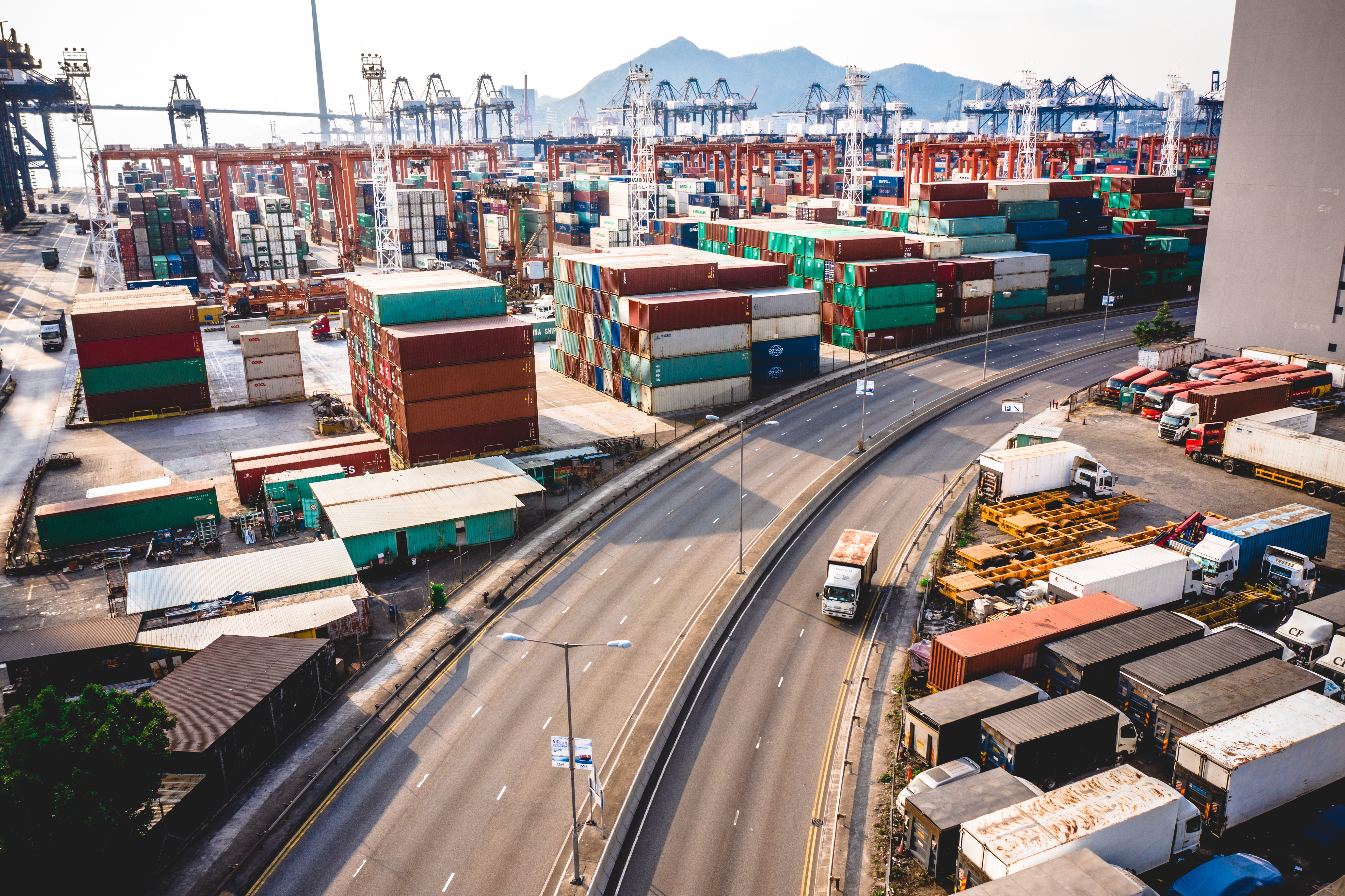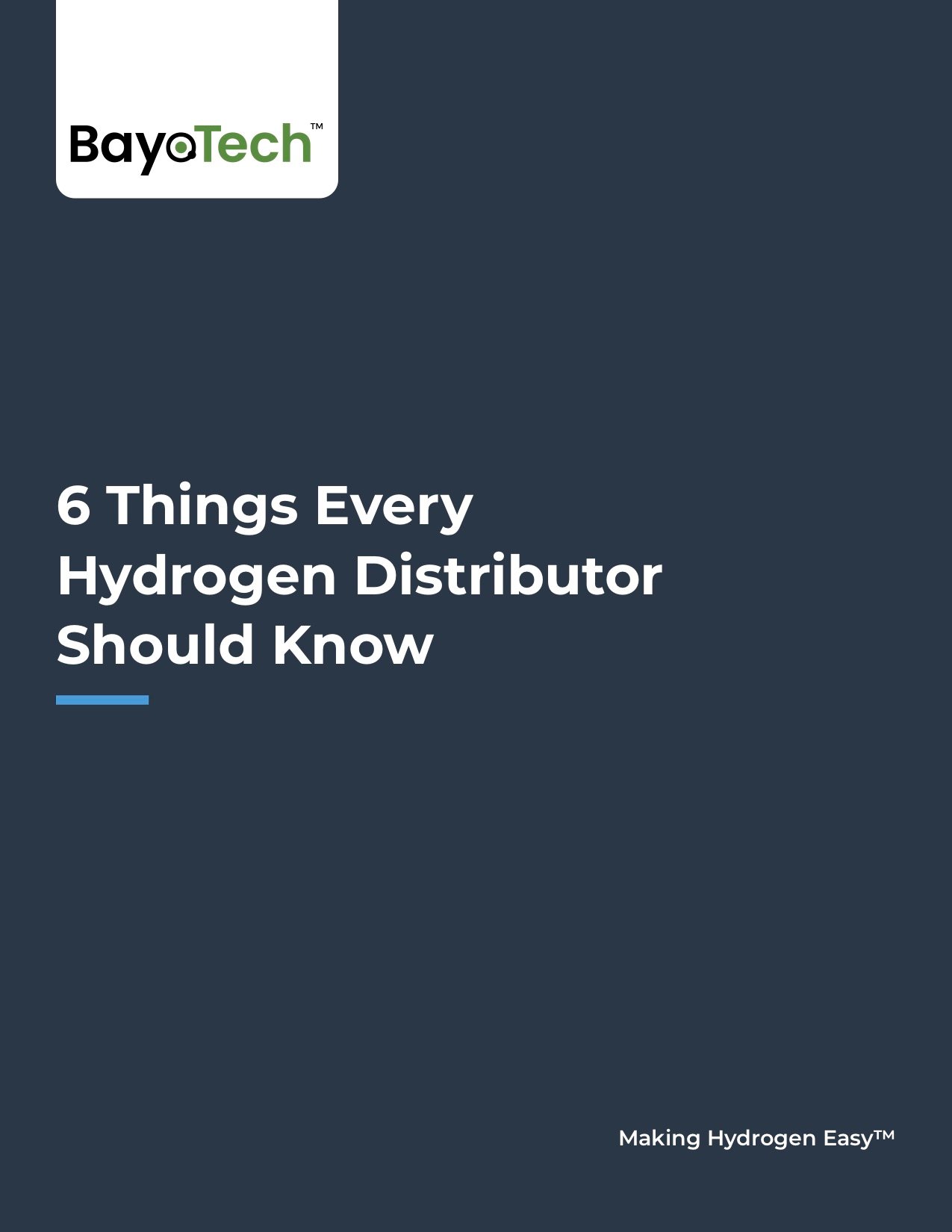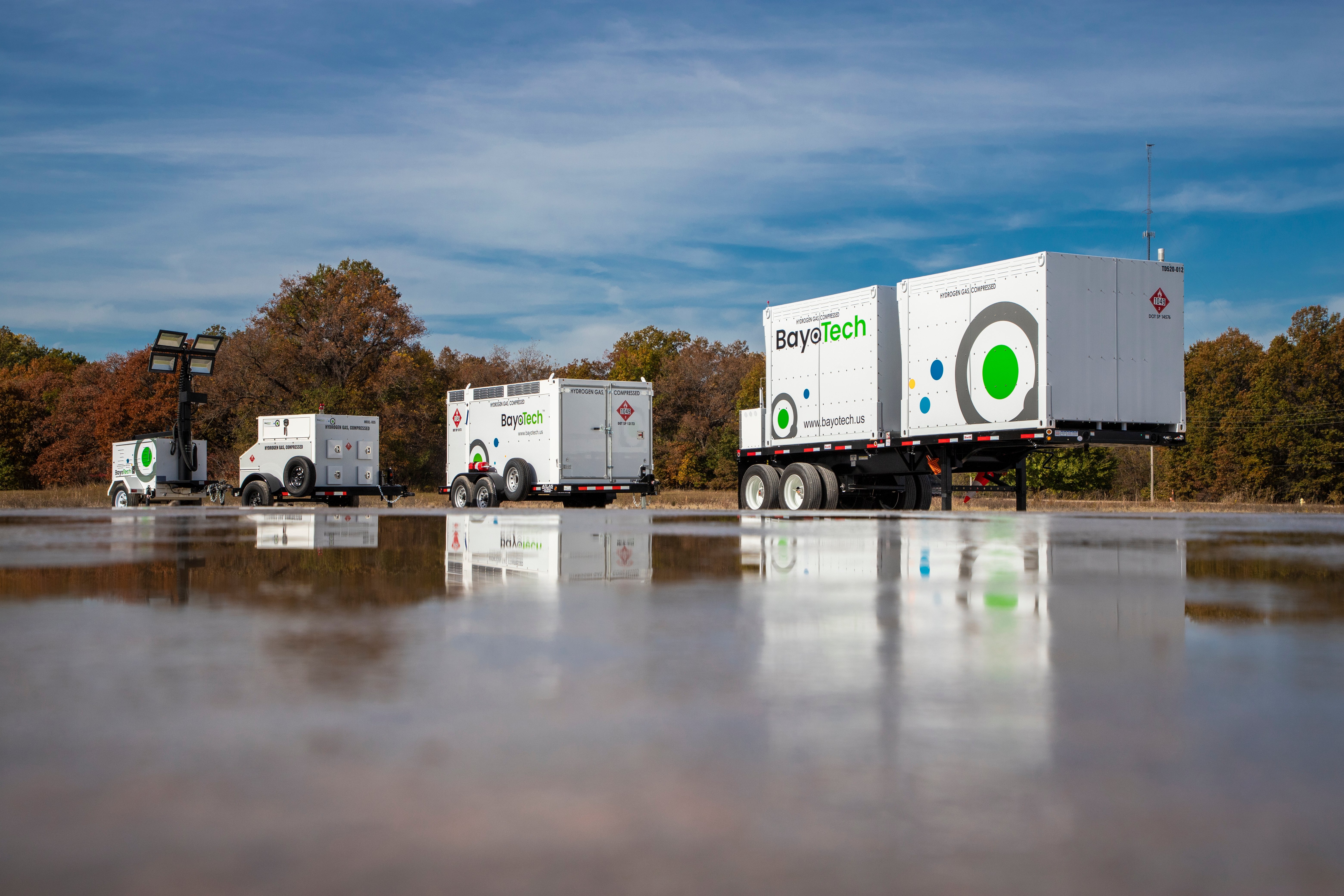It’s no wonder there’s a global push to reduce emissions coming from heavy-duty vehicles. Transportation produces 29% of America’s greenhouse gas (GHG) emissions—more than any other sector. In August 2021, the Environmental Protection Agency announced a set of rules to reduce GHG emissions caused by the transportation sector. Many of these rules, which come into effect in 2027, target heavy-duty trucks. In addition, California’s Advanced Clean Trucks regulations require truck manufacturers to increase the percentage of zero-emission vehicle sales.
With a global push toward zero-emission vehicles, coupled with the skyrocketing price of gas, a fleet of diesel trucks is no longer a viable long-term strategy. In the next few years, port operators and fleet managers will have to transition to new, cleaner energy sources.
Why Choose Hydrogen?
Heavy-duty transport is the ideal use case for hydrogen. The long-range capabilities and fast refueling mean they can match and exceed the performance of diesel trucks—while producing zero emissions at the tailpipe.
Battery electric trucks—the only other zero-emission alternative—quickly run into payload issues. Long-distance trips require massive battery packs, which reduces the amount of weight the truck can carry due to weight restrictions and cargo space. The further the trucks need to go, the less they can transport. Storage space isn’t a problem with hydrogen-powered trucks. Fuel cells take up less room than battery packs. For long-distance trips, where maximizing the amount of cargo per truck is a key consideration, this is a valuable benefit.
When it comes time to refuel the vehicles, hydrogen is a clear winner. They perform best when operating on a back-to-base model, where fleets start and end their day at a central depot, ensuring that there is always the required fuelling infrastructure. Their fast refueling means the trucks are always ready to go.
.jpg?width=6437&name=iStock-1306857149%20(3).jpg)
A hydrogen truck can complete a cross-country drive 35% faster than a battery-powered truck. Why? Less down time. Hydrogen trucks refuel 15 times faster than their battery-powered counterparts. Minimal downtime translates into real savings for companies that depend on the efficient movement of goods around the country.
Who Benefits From Switching to Hydrogen?
Ports benefit greatly from a transition to hydrogen. Thousands of diesel-powered vehicles drive through ports, moving cargo off ships and onto trucks. A port uses drayage trucks, tractors, cranes and forklifts. All of which have fuel cell options. And because ports are a central hub of activity, investing in hydrogen infrastructure consolidates the demand to one location, which in turn reduces the cost of hydrogen. Instead of having separate facilities for each type of vehicle, which would require several refueling hubs, these vehicles can be refueled at a single place—the port.
Fleets involved with long-haul trucking also see a major benefit to choosing hydrogen. With hydrogen, people get diesel-like performance while producing zero emissions. High cargo capacity, fast fueling, and a lower total cost of ownership than electric trucks. It’s the ideal combination. And as hydrogen fueling infrastructure expands, costs will reduce further.

How to Fuel Your Vehicles
The biggest question port operators and fleet managers have is about the source of the hydrogen. Where are they going to refuel their trucks?
As we mentioned earlier, hydrogen-powered trucks are ideal in a back-to-base model. Having a central location allows for infrastructure to be set up for fast and reliable refueling. For instance, our BayoGaaS® Hydrogen Hubs provide a low-cost, low-carbon fuel solution. We install and operate a hub to generate onsite hydrogen. The hubs are quick to deploy, have a small footprint of only 0.25 acres, and utilize existing natural gas infrastructure.
They also include a retail fueling station to make hydrogen readily accessible to port tenants. Other heavy-duty transportation and logistics fleets operating in the area can convert to zero-emissions technologies and take advantage of BayoTech’s hydrogen on demand.
Finally, our GTM trailer allows for the direct fueling of trucks without the need to coordinate refueling stations over long distances. Our trailers deliver the same amount of hydrogen as steel-tube trailers in a footprint one-third of the size.
Final Thoughts
Hydrogen fuel cells are the perfect energy source for heavy-duty trucks. They provide exceptional performance with little compromise. Fast refueling and high cargo space at a lower total cost of ownership. To learn more about how hydrogen will influence the future of heavy-duty transportation, check out our brochure.




